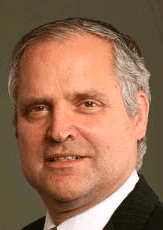
Professionals such as lawyers and doctors sometimes become addicted. The commonest addiction among lawyers is to alcohol. Drugs are also a problem, perhaps for doctors more than lawyers. Addiction to child and other pornography has no doubt developed within the legal profession partly because many lawyers are now intensive users of computers.
These addictions affect a professional’s judgment and cause problems. Determining the extent of these problems is difficult because addicts, particularly professionals, are commonly “in denial”. This denial often extends to their colleagues and family. Problems may be seen as caused not by an addiction but by stress, depression incompetence or dishonesty. Only when a lawyer is to be disciplined for misconduct will they sometimes admit their addiction to avoid the severest penalty of being struck off. A negligence claim against a lawyer is usually not enough, since the addiction of the lawyer is irrelevant to the outcome of the case.
All this is a problem to insurers. They insure lawyers against negligence claims and support the profession in providing redress when a lawyer steals from a client or fails to pay them what they are due. Addiction and problems arising from it are one of the reasons why lawyers misuse client funds.
Other costs to the insurance industry may arise when the addicted lawyer is involved in an accident, commits crimes and/or suicide or is constrained to accept early retirement because of their condition. On the other hand if they begin to face up to their problems they usually find that treatment on the NHS has been run down and that their private medical insurance excludes treatment for alcohol and drugs. This isn’t very well planned since treatment of professionals, as well as others, can be effective and reduce the risk of claims.
In 1997 the legal profession established a charity, LawCare, to help lawyers with problems such as stress, depression, career problems and alcohol and drug addiction. LawCare has made little impact on the problem of addiction. It only helped 17 individuals with alcohol problems in 2016, representing 3% of its workload. Other addictions seem to be an even smaller part of its workload. LawCare is under-resourced compared with equivalent organisations in North America. Another factor is that alcoholism is often co-morbid with mental health problems. So a lawyer will more readily admit to being a depressive than an alcoholic even though alcohol is their more serious problem.
Since insurers are paying the bill for many lawyers’ problems there is an opportunity for them to help in providing risk management advice and in funding evidence based interventions, such as treatment, with a view to achieving for themselves a long term reduction in claims as well as a more sober working environment for lawyers. Insurers might also nominate a LawCare board member. Insurers are in a sense champions of good governance. For instance, insurer RSA’s workplace alcohol programme was featured as an instance of best practice in the last Labour Government’s alcohol policy.
All this is discussed this in more detail in my research paper ‘Disciplinary proceedings affecting addicted lawyers and how they impact insurers‘. It was published in the Journal of the British Insurance Law Association. It draws comparisons with how this issue is dealt with in the USA and Commonwealth jurisdictions and within the medical profession.
Written by insurance solictor Jonathan Goodliffe.
All IAS Blogposts are published with the permission of the author. The views expressed are solely the author’s own and do not necessarily represent the views of the Institute of Alcohol Studies.
